
German Foreign Minister Annalena Burbock told her Polish counterpart Zbigniew Rau that Berlin would not pay reparations for World War II to Poland under any circumstances, the Associated Press reported on Tuesday.
“The question of reparations, as you know, from the point of view of the German authorities, is closed,” Burbock said during a press conference in Warsaw. The conference took place after ministerial talks on the subject.
In turn, Rau expressed the hope that Germany’s position could change.
On Monday, the head of the Polish Foreign Ministry sent a note to Germany, which requested about $1.3 trillion in reparations for material and other damage that Germany inflicted on Poland during the occupation in 1939-1945.
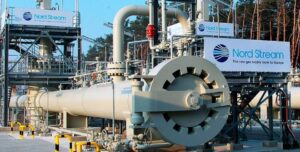
German authorities believe that the Nord Stream and Nord Stream 2 gas pipelines will permanently fail if they are not quickly repaired, Tagesspiegel reported on Wednesday, citing sources in the German government.
“If the gas pipelines are not quickly repaired, a lot of sea water will get into them, and the pipelines will corrode,” the newspaper notes.
After the incident with gas pipelines, the German authorities intend to strengthen control over the movement of ships in their territorial waters. Berlin also intends to pay more attention to the protection of critical infrastructure, coastal areas of the country, terminals under construction for receiving liquefied natural gas and telecommunications cables passing under water.
As reported, on the night of September 26, a leak occurred on one of the lines of the Nord Stream 2 pipeline. It happened in the Danish exclusive economic zone southeast of Bornholm. Also, gas leaks were recorded from both lines of the first Nord Stream northeast of Bornholm.
According to the Tagesspiegel, the German Federal Intelligence Service and state security agencies suspect that sabotage was the cause of the incident.
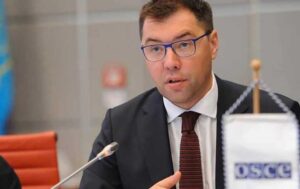
By his decree, President of Ukraine Volodymyr Zelensky has appointed Oleksiy Makeev as Ukraine’s Ambassador to Germany.
The relevant document No. 662/2022 was published on the website of the head of state on Friday.
“To appoint Aleksey Sergeevich Makeev as Ambassador Extraordinary and Plenipotentiary of Ukraine to the Federal Republic of Germany,” the decree says.
Oleksiy Makeev is a special representative of the Ministry of Foreign Affairs of Ukraine on sanctions policy.
Makeyev’s predecessor as Ukraine’s ambassador to Germany, Andriy Melnyk, was fired by President Zelensky on July 11. He has held this post since 2014.
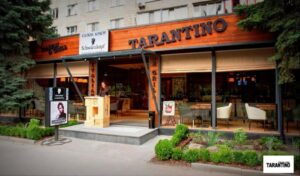
Florian Bollen, a German businessman and co-owner of craft breweries German Kraft Beer, Tarantino Family restaurant chain is coming under the control of Florian Bollen, the chain’s website says.
“From October 1, 2022, the Tarantino Family will come under the control of the German businessman and co-owner of craft breweries Florian Bollen. The new owner already owns the German Kraft Beer chain in London, plans to invest and develop the restaurant market in Kyiv,” the message says.
Bollen’s LinkedIn indicates that the businessman will take over the restaurant chain.
“The start of work in Kyiv will be a great confirmation of our belief in the victory of the Ukrainians and a good example for European investors,” he commented.
The Tarantino Family network in Kyiv includes restaurants “Rukkola”, “Murakami”, Villa Riviera and others, in total 28 objects. Among the owners of the network is Dmitry Fedotenkov.
As reported, the capital’s law enforcement officers are investigating the criminal activities of the owners of a well-known restaurant chain for the legalization and withdrawal of funds in the Russian Federation. According to the Kyiv prosecutor’s office, citizens of Ukraine – the owners of a large restaurant chain – retained control over the business in the territory of the aggressor country, transferring it to the management of a Russian restaurateur. The name of the network was not called, but later information spread in the media that it was about the Tarantino Family.
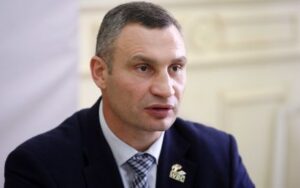
Kyiv Mayor Vitaliy Klitschko appealed to the Federal Minister of Economic Cooperation and Development of Germany to transfer generators and mobile heating units to Kyiv as an aid, according to the website of the mayor of the Ukrainian capital on Wednesday.
“I am talking with German partners about helping the Ukrainian capital and the people of Kiev to get through this heating season, which will be very difficult under martial law. In particular, I appealed to the Federal Minister for Economic Cooperation and Development of Germany to provide Kyiv with generators and mobile heating points as assistance,” wrote Klitschko in the Telegram channel.
The mayor of Kyiv also said that the Ukrainian capital will acquire mobile mobile boilers as a backup source of heat supply in case of emergency during the heating season. They will provide heat to hospitals, kindergartens, schools, and will work at heating points that the city will deploy.
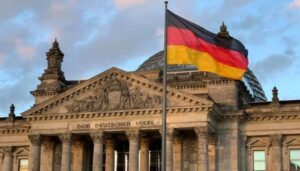
The Federal Council of Germany has published a decision to change the rules for the stay of Ukrainian citizens in the country from September 1, 2022.
According to the decision of the government, from September 1, for citizens of Ukraine, the registration of the time spent in the country begins. All days of stay will be taken into account, starting from February 24. Those Ukrainians who stay in Germany for more than 90 days will have to receive temporary protection status or leave the country for the next 90 days.
At the same time, Ukrainians who arrive in Germany after September 1, 2022 will also be able to legally stay in the country for 90 days without having to apply for registration of temporary protection status.
Registration for citizens of Ukraine will be open throughout the war.